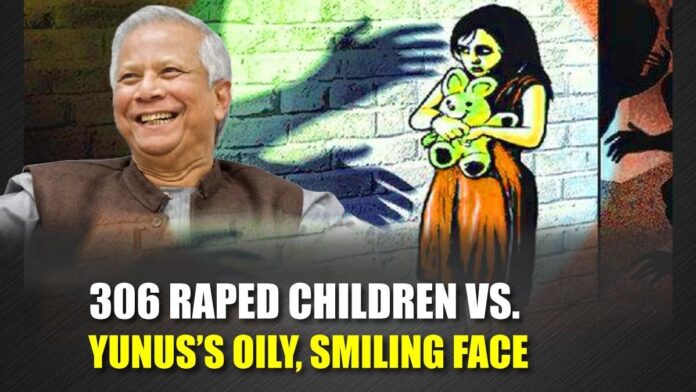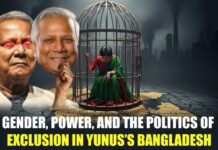Children in Bangladesh are no longer safe. The level of violence against them has risen so sharply that home, school, and even the online world are no longer secure. From January to July 2024—just seven months—306 children were raped. Compared to the same period last year, this marks a nearly 75 percent increase. These figures are not just numbers; they signify an ongoing war against the nation’s future generation. But who is behind this war? Who has pushed the country to such a point where children are not even safe in their own homes?
What happened in Bangladesh last July was nothing short of a planned devastation. With foreign funding, the backing of Islamic jihadist groups, and the support of the military, nationwide riots were orchestrated to overthrow the elected government. Power was seized illegally, and democracy was struck at its core. Behind this unlawful takeover stand moneylender Muhammad Yunus and his ally, Army Chief Waker-uz-Zaman. Under their grip, Bangladesh has plunged into a dark era where children face abuse, women live in insecurity, and ordinary lives remain unprotected.
According to recent data published by the development organization Lido, child abuse has now become a dire social crisis. Schools, families, even social media—nowhere are children safe. But what is the root cause of this crisis? Why are Bangladesh’s children unsafe at home, in schools, and online? At the core lies state collapse, absence of rule of law, and the rise of extremism. When the nation’s highest office is occupied by an illegitimate regime, when the military stands against democracy—how can ordinary lives, especially children’s lives, remain secure?
Lido’s founder, Forhad Hossain, said:
“Children are at the center of today’s program. We adults will try to make their path a little easier. We want the information we have gathered to reach the highest levels of the state. So that the state feels it must act for these children—so that they can use their talents to take the nation forward.”
But where is that state today? How can this state protect its children when the state itself is illegitimate, when Muhammad Yunus and his collaborators hold the reins of power?




